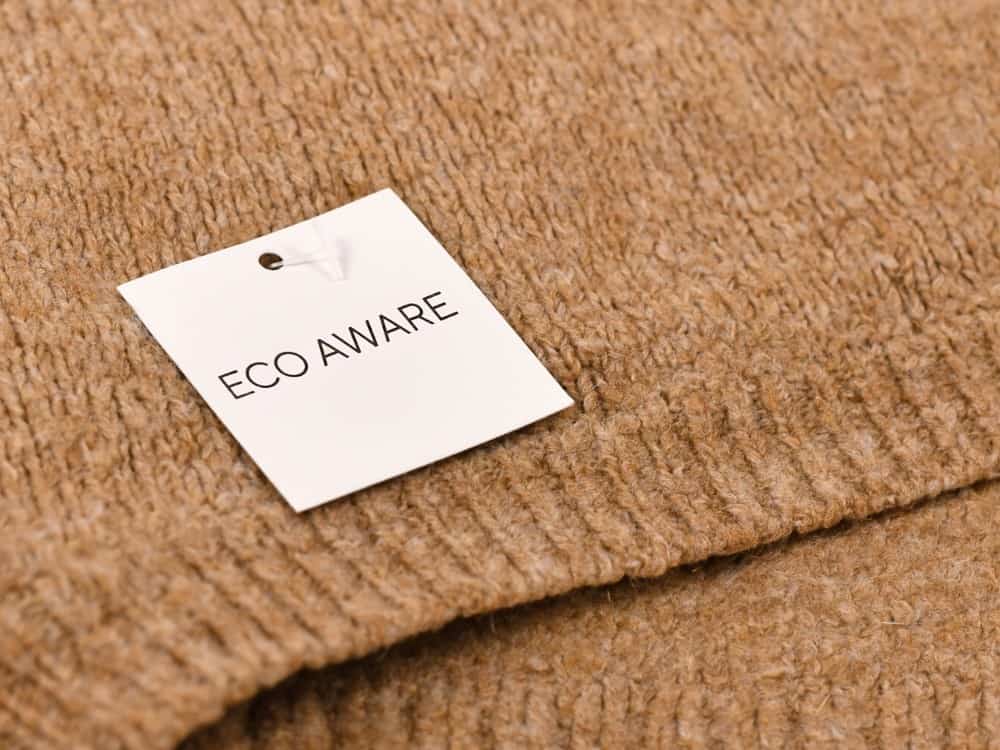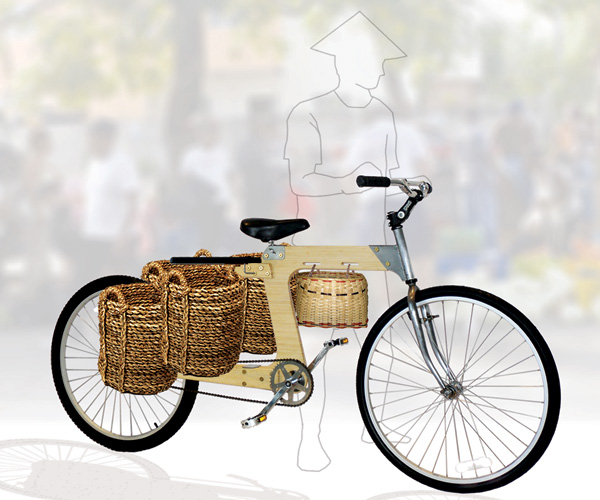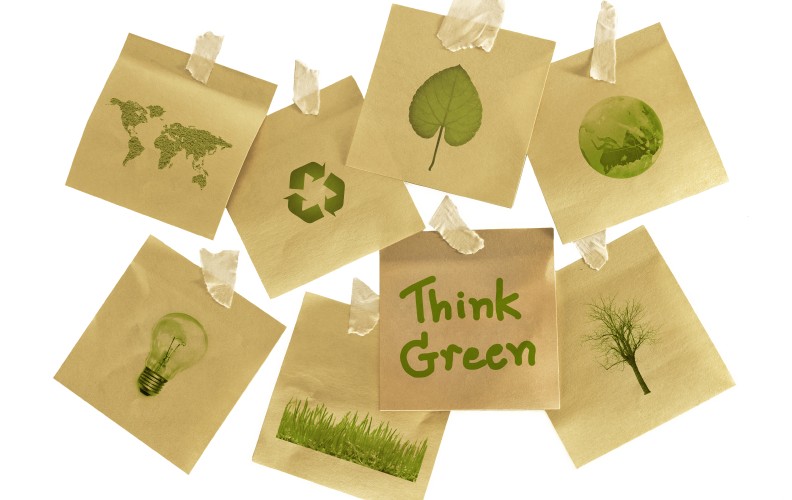
In today's world, where sustainability and environmental consciousness are becoming increasingly important, adopting a zero waste lifestyle has gained significant attention.
This article aims to provide you with 12 game-changing techniques for zero waste living, with a primary focus on making reusable products your new norm.
By incorporating these practical and informative strategies into your daily routine, you can contribute to a more sustainable future while enjoying the freedom that comes with reducing waste and embracing reusable alternatives.
Reusable Products
Reusable products are essential for achieving a zero waste lifestyle and reducing our environmental impact. By embracing reusable utensils and cloth diapers, we can significantly minimize our contribution to landfill waste.
Replacing single-use plastic cutlery with reusable utensils is a simple yet impactful step towards sustainability. Investing in durable stainless steel or bamboo utensils allows us to enjoy meals on the go without generating unnecessary waste.
Similarly, choosing cloth diapers over disposable ones can make a significant difference. Cloth diapers are not only cost-effective but also environmentally friendly, reducing the amount of non-biodegradable waste that ends up in landfills.
Composting
To further reduce our environmental impact and move towards a zero waste lifestyle, the implementation of composting practices is crucial. Composting benefits both the environment and individuals by reducing waste sent to landfills and creating nutrient-rich soil for gardening.

Here are three composting techniques that can help you get started:
- Backyard Composting: This method involves collecting organic waste, such as fruit and vegetable scraps, yard trimmings, and coffee grounds, in a designated compost bin or pile. Regular turning and proper moisture levels promote decomposition and produce nutrient-rich compost.
- Vermicomposting: Using worms to break down organic waste, vermicomposting is ideal for those with limited outdoor space. A worm bin is set up indoors or outdoors, and worms consume the waste, producing nutrient-rich castings that can be used as fertilizer.
- Bokashi Composting: This fermentation-based method allows for the composting of all food waste, including meat and dairy. Using a bokashi bin and a mix of beneficial microorganisms, the waste is fermented, reducing odor and producing nutrient-rich material that can be buried or added to a regular compost pile.
Recycling
Recycling is a crucial aspect of zero waste living, offering numerous benefits for both individuals and the environment.
By recycling, we can conserve natural resources, reduce pollution, and decrease the amount of waste that ends up in landfills.
Effective recycling methods, such as separating recyclable materials and supporting recycling programs, are key to ensuring sustainability and creating a more environmentally-friendly future.
Benefits of Recycling
One of the primary advantages of incorporating sustainable waste management practices is the reduction of waste sent to landfills. Recycling plays a crucial role in waste management by diverting materials from the landfill and giving them a new life.
Here are three benefits of recycling:
- Conservation of resources: Recycling reduces the need for extracting and processing raw materials, such as trees for paper or ores for metal production. By recycling, we can conserve natural resources and protect our environment.
- Energy savings: Recycling requires less energy compared to manufacturing products from virgin materials. This leads to a reduction in greenhouse gas emissions and helps combat climate change.
- Economic benefits: Recycling creates jobs in the recycling industry, contributing to local economies. It also helps reduce waste management costs for communities and businesses.
Effective Recycling Methods
By implementing effective recycling methods, we can further enhance the benefits of sustainable waste management practices and contribute to a more environmentally conscious lifestyle.

Recycling education plays a crucial role in ensuring that individuals understand the importance of recycling and how to properly sort and process different types of waste materials.
Waste management strategies, such as curbside recycling programs and community recycling centers, provide convenient options for individuals to participate in recycling initiatives. These methods help divert waste from landfills and conserve valuable resources.
Additionally, implementing recycling bins in public spaces and educational institutions encourages responsible waste disposal and fosters a culture of recycling from a young age.
Recycling for Sustainability
Implementing sustainable waste management practices through recycling is a vital step towards achieving a zero waste lifestyle. Recycling not only helps reduce the amount of waste sent to landfills but also conserves natural resources and reduces pollution.
Here are three key reasons why recycling is essential for sustainability:
- Conservation of Resources: Recycling allows us to reuse materials and reduce the need for extracting new raw materials. This helps conserve natural resources such as timber, water, and minerals.
- Reduction in Landfill Waste: By recycling, we divert waste from landfills, which helps reduce greenhouse gas emissions and prevents the release of harmful chemicals into the environment.
- Community Engagement: Recycling initiatives provide opportunities for community engagement and involvement. By participating in recycling programs, individuals can contribute to a cleaner environment, educate others about the importance of recycling, and inspire positive change.
Consumption Reduction
To achieve consumption reduction in zero waste living, adopting a minimalist mindset is crucial. By embracing the concept of minimalism, individuals can prioritize their needs and reduce unnecessary purchases, leading to a significant reduction in waste production.
One effective strategy is to evaluate each purchase before making it, asking oneself if the item is truly essential and if it aligns with sustainable living practices.

Additionally, embracing a 'buy less, use more' mentality can help reduce consumption by maximizing the lifespan of products through proper care and maintenance. This approach not only reduces waste but also saves money and promotes a more sustainable lifestyle.
Bulk Buying
Bulk buying is a cost-effective way to practice zero waste living. By purchasing items in bulk, you can reduce packaging waste and save money in the long run.
This approach allows you to have more control over the amount of packaging waste generated, as you can choose products with minimal or no packaging.
Cost-Effective Zero Waste
The cost-effective approach to zero waste living involves incorporating bulk buying into your daily routine. By purchasing items in bulk, you can not only save money but also reduce packaging waste.
Here are three cost-saving strategies for sustainable purchasing:
- Plan ahead: Make a shopping list and calculate the quantity of items you need for a specific period. This way, you can buy in bulk and avoid unnecessary trips to the store.
- Join a bulk buying club: Many communities have bulk buying clubs where members pool their resources to purchase items in bulk at discounted prices. This allows you to access a wider range of products and enjoy significant savings.
- Invest in reusable containers: Instead of relying on single-use packaging, bring your own reusable containers to the store or bulk buying club. This not only reduces waste but also saves money in the long run.
Reducing Packaging Waste
One effective way to significantly reduce packaging waste is by incorporating bulk buying into your shopping routine. By purchasing items in bulk, you can minimize the amount of packaging that ends up in landfills. When you buy in bulk, you reduce the need for individual packaging, which often includes plastic wrappers, containers, and boxes.
Instead, you can bring your own reusable shopping bags or containers to the store and fill them with the desired amount of product. Additionally, opting for products with eco-friendly packaging can further reduce waste. Look for items that are packaged in materials that are easily recyclable or compostable, such as glass, paper, or cardboard.

DIY Products
To embrace a zero waste lifestyle, it is essential to incorporate DIY products into your daily routine. By making your own items, you can reduce waste, save money, and have more control over the ingredients and materials used. Here are three DIY products that you can easily make at home:
- DIY Cleaning Products: Say goodbye to store-bought cleaners filled with harmful chemicals. With simple ingredients like vinegar, baking soda, and essential oils, you can create effective and eco-friendly cleaning solutions for your home.
- DIY Beauty Products: Ditch the plastic-packaged skincare and makeup products by making your own. From face masks and scrubs to lip balms and body lotions, there are countless DIY tutorials available online that will guide you in creating natural and personalized beauty products.
- DIY Food Wraps: Replace single-use plastic wraps with homemade beeswax wraps. These reusable alternatives can be easily made by coating a piece of fabric with melted beeswax. They are perfect for wrapping sandwiches, fruits, and vegetables, keeping them fresh while reducing plastic waste.
Incorporating DIY products into your zero waste journey is a practical and empowering way to live more sustainably.
When adopting a zero waste lifestyle, a crucial step is embracing package-free shopping. This means actively seeking out stores and markets that offer products without unnecessary packaging. By doing so, you can significantly reduce the amount of waste you generate and contribute to a more sustainable future.
Package-free shopping allows you to purchase items in bulk or bring your own reusable containers, eliminating the need for single-use packaging like plastic bags or wrappers. It also encourages you to be mindful of your consumption habits and choose products that are locally sourced and environmentally friendly.
Incorporating package-free shopping into your zero waste lifestyle not only reduces waste but also promotes a more conscious and sustainable way of living. So, start exploring your local community and discover the many benefits of zero waste shopping.
Waste Auditing
Waste auditing is a vital practice in zero waste living that involves assessing and analyzing the composition of your waste to identify areas for improvement and develop effective waste reduction strategies. By conducting a waste audit, you can gain valuable insights into your consumption patterns and identify opportunities to reduce waste.
Here are three key benefits of waste auditing:

- Identification of waste sources: A waste audit helps you understand the main sources of waste in your life, such as excessive packaging, food waste, or single-use items. This knowledge allows you to target specific areas for waste reduction efforts.
- Quantification of waste: By measuring and quantifying your waste, you can track your progress in waste reduction over time. This data provides a baseline for setting goals and monitoring your waste management efforts.
- Development of effective strategies: With a clear understanding of your waste composition, you can develop tailored strategies to minimize waste. This may involve adopting reusable alternatives, practicing mindful consumption, or supporting businesses with sustainable packaging practices.
Waste auditing empowers individuals to take control of their waste generation and make informed choices that contribute to a more sustainable future.
Plastic Alternatives
One key aspect of zero waste living is exploring and adopting viable alternatives to plastic products. With the negative environmental impact of single-use plastics becoming more evident, it is crucial to seek out alternative materials that are more sustainable and eco-friendly.
Fortunately, there are numerous options available for replacing plastic in our daily lives. Products made from materials such as glass, stainless steel, bamboo, and silicone can serve as excellent substitutes for single-use plastics. These alternatives are durable, reusable, and can be easily incorporated into our routines.
From reusable water bottles and food containers to silicone food wraps and bamboo toothbrushes, there are countless alternatives that can help reduce our dependency on plastic. By embracing these alternative materials, we can make significant progress towards a zero waste lifestyle while minimizing our impact on the environment.
Donating
How can charitable donations contribute to a zero waste lifestyle?
Donating items that are no longer needed or used can significantly reduce waste and contribute to a zero waste lifestyle. By donating, you are giving these items a new life and preventing them from ending up in landfills.
Here are three ways in which donating can help in waste management:

- Extending the lifespan of items: Donating items allows others to use and enjoy them, extending their lifespan and reducing the need for new products to be manufactured.
- Reducing consumption: When you donate items, you are promoting a culture of reuse and encouraging others to think twice before purchasing new things, thus reducing overall consumption.
- Supporting local communities: Donating to local charities and organizations helps support those in need and strengthens community ties, creating a more sustainable and resilient society.
Sustainable Packaging
Sustainable packaging plays a crucial role in achieving a zero waste lifestyle by minimizing environmental impact and promoting resource conservation. When it comes to sustainable shipping, choosing eco-friendly materials is essential.
Traditional packaging materials, such as plastic and Styrofoam, contribute significantly to waste and pollution. However, there are more sustainable alternatives available. Eco-friendly packaging options include biodegradable materials like paper and cardboard, as well as compostable materials like cornstarch-based plastics. These materials can be recycled or easily decomposed, reducing their impact on the environment.
Additionally, sustainable packaging can also incorporate other eco-friendly practices, such as reducing the amount of packaging used, using recycled materials, and opting for reusable packaging options.
When it comes to adopting a zero waste lifestyle, second-hand shopping can be a game-changer.
Not only does thrift shopping have numerous benefits, such as saving money and reducing waste, but it also allows you to find unique treasures that add character to your home.
To make the most of your second-hand shopping experience, keep an open mind, explore different thrift stores, and prioritize quality over quantity.
Thrift shopping offers numerous advantages for those seeking to adopt zero waste practices. Not only does it promote sustainability by reducing the demand for new products, but it also allows individuals to discover unique and affordable second-hand treasures.

Here are three benefits of thrift shopping:
- Environmental Impact: By purchasing second-hand items, you are extending their lifespan and diverting them from landfills. This reduces the amount of waste generated and the resources needed to produce new items.
- Cost Savings: Thrift shopping offers significant savings compared to buying brand new products. You can find high-quality items at a fraction of their original price, allowing you to save money while still enjoying the things you need or want.
- Unique Finds: Thrift stores are a treasure trove of one-of-a-kind items. Whether it's vintage clothing, antique furniture, or retro decor, thrift shopping allows you to find unique pieces that reflect your personal style and stand out from the crowd.
Reducing Waste Through Reuse
By incorporating the practice of second-hand shopping, individuals can effectively reduce waste through reuse. Reusable fashion is becoming increasingly popular, allowing people to find unique and stylish clothing items at a fraction of the cost. Thrift stores, consignment shops, and online platforms dedicated to second-hand shopping offer a wide range of options for those seeking sustainable fashion choices.
In addition to clothing, second-hand shopping also extends to other items such as furniture, household goods, and electronics. By opting for pre-owned items, individuals can give these products a second life, reducing the demand for new resources and minimizing waste.
Another way to reduce waste through reuse is by engaging in upcycled crafts. This involves transforming old or discarded items into new and useful products. With a bit of creativity, everyday objects can be repurposed and given a new lease on life, reducing the need for new purchases and ultimately reducing waste.
Tips for Finding Treasures
To maximize your success in second-hand shopping, it is essential to employ effective strategies and techniques. Here are three tips to help you find treasures and make the most of your second-hand shopping experience:
- Explore thrift stores:
Thrift stores are a goldmine for finding vintage and unique items. Take your time to browse through different sections and keep an open mind. You never know what hidden gems you may uncover.
- Attend garage sales and flea markets:
These events are perfect for finding one-of-a-kind items at bargain prices. Be an early bird to get the best selection and negotiate prices if necessary. Remember to bring cash and reusable bags to avoid unnecessary waste.
- Repurpose items creatively:
Look beyond an item's original purpose and think about how you can repurpose it in your own life. For example, an old ladder can be transformed into a bookshelf, or a vintage suitcase can become a unique storage solution. Let your imagination run wild and give new life to old items.
Frequently Asked Questions
How Can I Convince My Family and Friends to Adopt Zero Waste Practices?
To convince family and friends to adopt a zero waste lifestyle, provide practical tips for reducing waste in everyday life. Focus on the benefits of reducing waste, such as saving money and protecting the environment. Encourage small, achievable changes to make it more appealing and accessible.
Are There Any Resources Available to Help Me Find Package-Free Stores in My Area?
Package free shopping tips can be found through online resources and apps, allowing you to locate package-free stores in your area. Shopping at these stores provides benefits such as reducing waste and promoting sustainability.

What Are Some Innovative Ways to Reuse Common Household Items?
Upcycling ideas and creative repurposing techniques offer innovative ways to reuse common household items. These methods allow individuals to transform everyday objects into practical and functional items, contributing to a more sustainable and zero waste lifestyle.
Is It Possible to Achieve Zero Waste Living Without Compromising on Convenience?
Achieving zero waste living without compromising convenience is possible by adopting zero waste alternatives, such as reusable products and sustainable packaging. By making conscious choices and incorporating these practices into daily life, individuals can reduce waste and contribute to a more sustainable future.
How Can I Encourage My Workplace or School to Implement Zero Waste Initiatives?
Promoting sustainable practices in public spaces and engaging local communities are key strategies for encouraging workplaces and schools to implement zero waste initiatives. By increasing awareness, providing education, and offering practical solutions, organizations can make a significant impact on reducing waste.
 Business & FinanceHealth & MedicineTechnologyLifestyle & CultureScience & EnvironmentWorld NewsPrivacy PolicyTerms And Conditions
Business & FinanceHealth & MedicineTechnologyLifestyle & CultureScience & EnvironmentWorld NewsPrivacy PolicyTerms And Conditions
